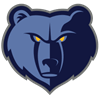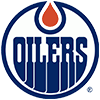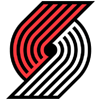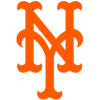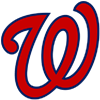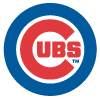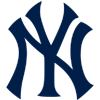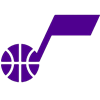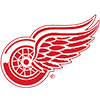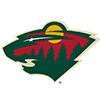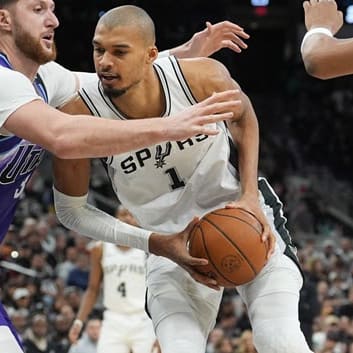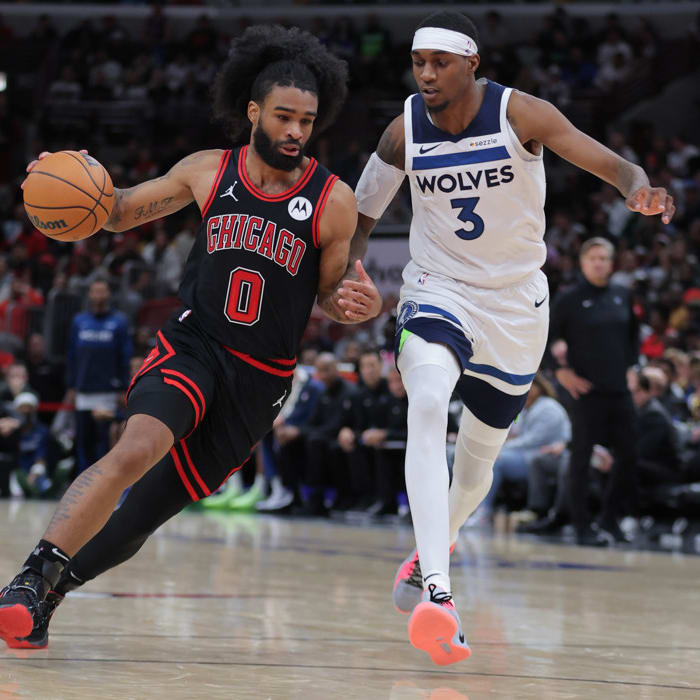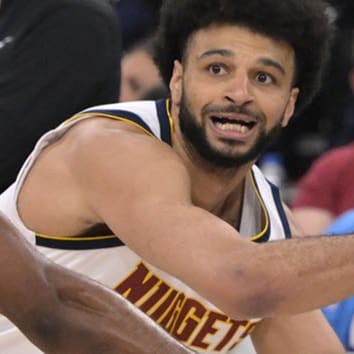OKLAHOMA CITY THUNDER
By Jason Thornbury
RotoWire Editor
STATE OF THE FRANCHISE
The franchise is in a new city with a new nickname, new colors, new logo, new uniforms and a new mascot. Just don't expect anything new on the court.
The 20-62 Sonics set a franchise mark for futility in their final season in Seattle. The inaugural season in Oklahoma City won't go much better for the newly monikered Thunder. The team is still weak in the frontcourt with a trio of inexperienced and unskilled centers and a power forward, Chris Wilcox, who routinely disappears against stronger competition. In the backcourt, Earl Watson is a capable point guard but likely will tutor rookie Russell Westbrook as much as direct the offense.
Whether in Seattle or Oklahoma City, Kevin Durant is still the face of the franchise. Last season's NBA Rookie of the Year, Durant was a one-man team at times. He was the team's lone scorer (no teammate averaged more than 13.4 points per game), averaged a team-high 35 minutes per game and routinely guarded the opposition's best player in the fourth quarter. Durant developed nicely as the season trudged on, averaging nearly 22 points per game and shooting 47.6 percent from the field after the All-Star bame. His rookie tag-team partner, Jeff Green, showed great potential but lacked consistency, leaving unanswered the question of whether he wants to be star or simply Durant's sidekick.
Highlights were few for the Sonics last season. The Thunder likely won't see many more, but when the losing gets old, at least fans can look forward to new lottery pick.
PLAYING TIME DISTRIBUTION
After sharing the point guard job with Luke Ridnour and Delonte West last season, Earl Watson has the position to himself this year. Russell Westbrook was drafted fourth overall for his superb defense, but the team hopes he'll develop into its point guard of the future. Don't be surprised if Westbrook is used late in games for his defense and gets more minutes as the season progresses. Neither is a great long-range shooter, and the offense goes through Kevin Durant, so don't expect consistent scoring. Westbook also will play shooting guard, likely the first man off the bench when Durant shifts to small forward.
Durant will start again at shooting guard and log most of his minutes there, though he'll see minutes at the three-spot as well when the team goes small and shifts Jeff Green to power forward. Green is the starter at small forward, but the team has a backlog at that position, and minutes for Desmond Mason, Damien Wilkins and D.J. White figure to be spotty. Training camp will determine who goes into the season with the upper hand. Mason and Wilkins also will rotate at shooting guard, providing more opportunities. Give the backup three-spot nod to Mason early because of his superior defense, but White, because of his youth, could earn regular minutes by the new year. Mason, traded to Oklahoma City in three-team deal, is in the last year of his contract, and his playing time could take a hit if the team decides he's not in its future plans. Wilkins has two years left, but likely won't finish his contract with the Thunder. If coach P.J. Carlesimo sticks to his stated desire of a nine-man rotation, it's hard to see where Wilkins fits.
The team also has a glut at power forward. Chris Wilcox will start with Nick Collison the first man off the bench and Green also seeing minutes at the four-spot. Expect Collison, though, to get significant minutes at center, as he did last season. Even though he's undersized for an NBA center, Collison is still more effective in the position than the team's three-headed alternative of Johan Petro, Robert Swift and Mouhamed Sene. That leaves Joe Smith, who arrived via trade in the offseason. He's in the last year of his contract and won't be back next year, which figures to leave him fighting for time. White has also been mentioned at the position, but given his size, it's hard to see him playing with his back to the basket in the NBA.
Petro has the edge in the center battle because of injuries to Sene, who likely will miss the start of the season with a knee injury, and Swift, who is coming off a knee injury and has a broken hand that won't be fully healed in time for training camp.
The best guess at a nine-man rotation looks like this: Watson (PG), Durant (SG/SF), Green (SF/PF), Wilcox (PF), Petro/Swift/Sene (C), Collison (PF/C), Westbook (PG/SG), Mason (SG/SF), White (SF).
PLAYER OUTLOOKS
Center
Johan Petro: Entering his fourth NBA season, Petro is still waiting for a breakout year. He was given the starting center job last season after Kurt Thomas was traded, but didn't do much with it, coming close to a permanent benching behind the likes of Francisco Elson. Petro, who averaged six points and 5.1 rebounds last season, is capable of a good game now and then -- he scored in double digits 11 times in 27 starts with three double-doubles -- but he is inconsistent and usually gets pushed around on the defensive end. He has yet to master basics like the pick-and-roll, and with little offensive game he's left to scrap for points off the glass. The team would like to see more of Robert Swift, but his injuries leave the door open for Petro. Mouhamed Sene, also injured entering camp, could be headed back to the D-League.
Mouhamed Sene: Sene will miss the start of the season recovering from knee surgery. He played in 13 NBA games last season, but his playing time came sporadically, and he never scored more than eight points in a game. Most of the season saw him playing in the D-League, where he was named co-defensive player of the year, averaging 12.4 points, nine rebounds and two blocks. After he returns from the knee injury, he'll likely be sent back to the D-League to get his bearings. Injuries or ineffectiveness could get him a callup, but don't expect significant minutes.
Robert Swift: The team still doesn't know what it has in Robert Swift. A first-round draft pick in 2004, Swift has had one injury after another. He missed 2006 with a knee injury and played in only eight games last season. When he did see the court, he offered nothing except fouls, with little physical presence in the paint despite his 7-foot stature. Swift enters camp this season with a broken hand that likely will limit him throughout the preseason. Once healthy, Swift could see decent minutes as the team assesses his future. If he develops as hoped, he could be a brick in the rebuilding effort. If not, his current one-year contract likely will be his last with the franchise.
Forward
Nick Collison: Collison is coming off of a career year, nearly averaging a double-double (career bests 9.8 points and 9.4 boards) despite playing less than 29 minutes per game and only starting 35 times in 78 games. Collison is undersized as a center at only 6-9, but he is not scared to throw around his 255 pounds as he uses contact and hustle on defense and a surprisingly strong offensive repertoire to good effect. Collison's game isn't dominant or diverse enough for him to become an impact center, but he shoots good percentages from both the field (50.2% FG) and the line (73.7% FT) which, when combined with the scoring and rebounds, makes him a viable rotation-caliber player. He'll likely start the season as the first power forward off the bench but, like last year, will figure into the center spot almost nightly if the team's young centers do not develop.
Jeff Green: The season totals for Green's rookie year really don't tell the whole story – his 10.5 points and 4.7 boards per game are far less impressive than the 15.6 and 6.3 he posted while averaging 37 minutes in April. With a season's worth of NBA experience under his belt, his improvement should continue. While he'll start the season at small forward, Green will see minutes at the four-spot this year, with rookie Russell Westbrook taking over at the two and Kevin Durant moving to his more natural three position -- especially if Chris Wilcox, who's contract is expiring, is traded mid-season. Playing closer to the basket should mean more rebounds for Green this year. Green had his ups and downs last season -- some games he looked like a future all-star, other times he seemed lost -- but that's to be expected from an NBA rookie. Overall, he got better as the year wore on and is more likely a star in the making rather than simply simply a role player for Kevin Durant.
Desmond Mason: Mason arrived in Oklahoma City in the offseason as part of a three-team trade. But whether it is a sweet homecoming for Mason, who played college ball at Oklahoma State, remains to be seen. His defensive acumen is highly valued, but his spot in the rotation is in question as the team has a glut of shooting guard/small forward types. His offensive opportunities likely will be limited, and he isn't one to fill up the stat sheet at any rate (he shot just 65.9 percent from the line last year). Mason's in the last year of his contract, which could mean a trade or reduced minutes if the team doesn't believe he's in the rebuilding plans. Even if Mason is a part of the future, he'll likely have to fight for minutes behind Kevin Durant, Russell Westbrook and Jeff Green.
Joe Smith: Smith is one of the few veterans on the roster, but offers only modest numbers, averaging 10.1 points and 5.2 rebounds per game last season. He'll likely be for Oklahoma City what Kurt Thomas was for Seattle last year -- a moderately productive role player who can play power forward and center until he's traded at mid-season. Smith, who will make $4.8 million in the final year of his contract, is not in the team's long-term plans. If he's not traded, expect his minutes to wane after decent playing time early on.
D.J. White: A draft-day trade brought White to the franchise, and he enters the season with as much intrigue as any of his teammates. Playing time might be sparse at first, but as the team's expiring contracts are dealt, White could end up getting significant run by year's end. The Big Ten Player of the Year last season, White averaged 17.4 points and 10.3 rebounds as a senior at Indiana. He doesn't have the size to play with his back to the basket in the NBA, but he'll rotate in at both forward positions and his seven-foot wingspan will keep him active around the basket. He has a good mid-range jumper and plays solid defense. He could be the team's sixth man of the future.
Chris Wilcox: Wilcox has never developed into the player many thought he'd become after helping lead Maryland to the NCAA title in 2002, and he's running out of opportunities to prove his worth. In the last year of his contract, Wilcox needs to do something to covince Oklahoma City that he belongs in their rebuilding plans or he could be dealt by mid-season. Wilcox posts the occasional big game, but usually bows to stronger competition. In 62 games, he scored 17 points or more 16 times and less than 10 points 18 times.
Guard
Kevin Durant: Durant entered the NBA with high expectations last season, and he fulfilled them by averaging more than 20 points per game on his way to the Rookie of the Year award. Durant struggled in the first half of the season as a volume scorer that shot only 40.2 percent from the field, but after the All-Star break he found his footing and averaged 21.9 points on 47.6-percent shooting from the field and 88.5 percent from the line. Durant is a long 6-10, with excellent range on his jumper and the ball-handling ability of a guard. He projects eventually as an NBA small forward, but he played last season at shooting guard due to his lack of physical strength. Look for Durant to venture down low a bit more this season, which should help him maintain his good percentages while also adding to his rebound total (4.3 rpg). Durant is also a solid defensive contributor, averaging 1.9 combined steals/blocks as a rookie. Durant should be among the leading scorers in the league this year, and if he adds a bit to his defensive contributions he could soon join the fantasy elite.
Earl Watson: Watson began the 2007-08 season as part of point-guard-by-committee, sharing the duties with Luke Ridnour and Delonte West. But Ridnour battled injuries, and West was traded to Cleveland, leaving Watson as the primary ball handler on the team. And he responded with a nice stretch over the course of the second half, posting 14.6 points and 7.1 assists in 32.0 minutes per game after the All-Star break. It was the most productive stint in his career. He's not a flashy playmaker, but Watson doesn't turn the ball over much and can knock down mid-range jumpers. He's a steady hand on a very young team, that's getting younger with the selection of combo guard Russell Westbrook in the first round. The team is nowhere near being a contender, so the rookie will be in the rotation from the beginning, with Watson entrusted in helping Westbrook's development. Watson could quite possibly begin the year as the starter and finish as a backup.
Kyle Weaver: Weaver is a capable point guard with a great feel for the game. He's a tenacious defender with long arms. However, Weaver's shooting is somewhat suspect, especially from mid-range. He tends to be too unselfish, and rarely looks for his own shot. But he has time to work it out, as he likely won't get off the bench much this season.
Russell Westbrook: Oklahoma City is rebuilding with defense, so it shouldn't have been a surprise when the team selected one of the best defenders in the draft with the fourth overall pick last June. Westbrook will see significant minutes as the team evaluates whether he is indeed the point guard of the future. He'll see time at shooting guard, as well, and likely will be used late in games for his defense. If Westbrook proves capable of directing the offense, he could start at point guard by season's end with mentor Earl Watson coming off the bench. Otherwise, he'll back up the guard positions and start at the two-spot when Kevin Durant starts at the three. Westbrook has a good mid-range jumper, but would be more valuable if he developed a long-range shot. Skilled in transition where his excellent athleticism serves him well, Westbrook needs to show he can play a half-court game, too.
Damien Wilkins: Last year was pretty much a lost season for Wilkins. His playing time wavered tremendously after losing his starting assignment to rookie Jeff Green. Wilkins scored in double figures 14 times in the first month of the season; it took him four months to double that total. This season, he finds himself far down the depth chart with at least four or five teammates ahead of him at shooting guard/small forward. Minutes will be hard to come by for Wilkins, who likely will be dumped if the opportunity presents itself.
Sleeper:
Russell Westbrook: Westbook is the third leg of the team's rebuilding effort with Kevin Durant and Jeff Green. If he proves capable at point guard, he could push out Earl Watson as the starter sooner than later. Still, he should get consistent minutes because of his defense and ability to also play shooting guard.
Bust:
Johan Petro/Robert Swift/Mouhamed Sene: The three-headed center rotation likely will prove this season what most suspect -- none of three is a trustworthy NBA starter. Swift's injuries have slowed his evaluation; Petro likely has one more season to prove his worth before the team gives up on him; and Sene likely will spend time in the D-League again this season.
Article first appeared on 9/30/08








